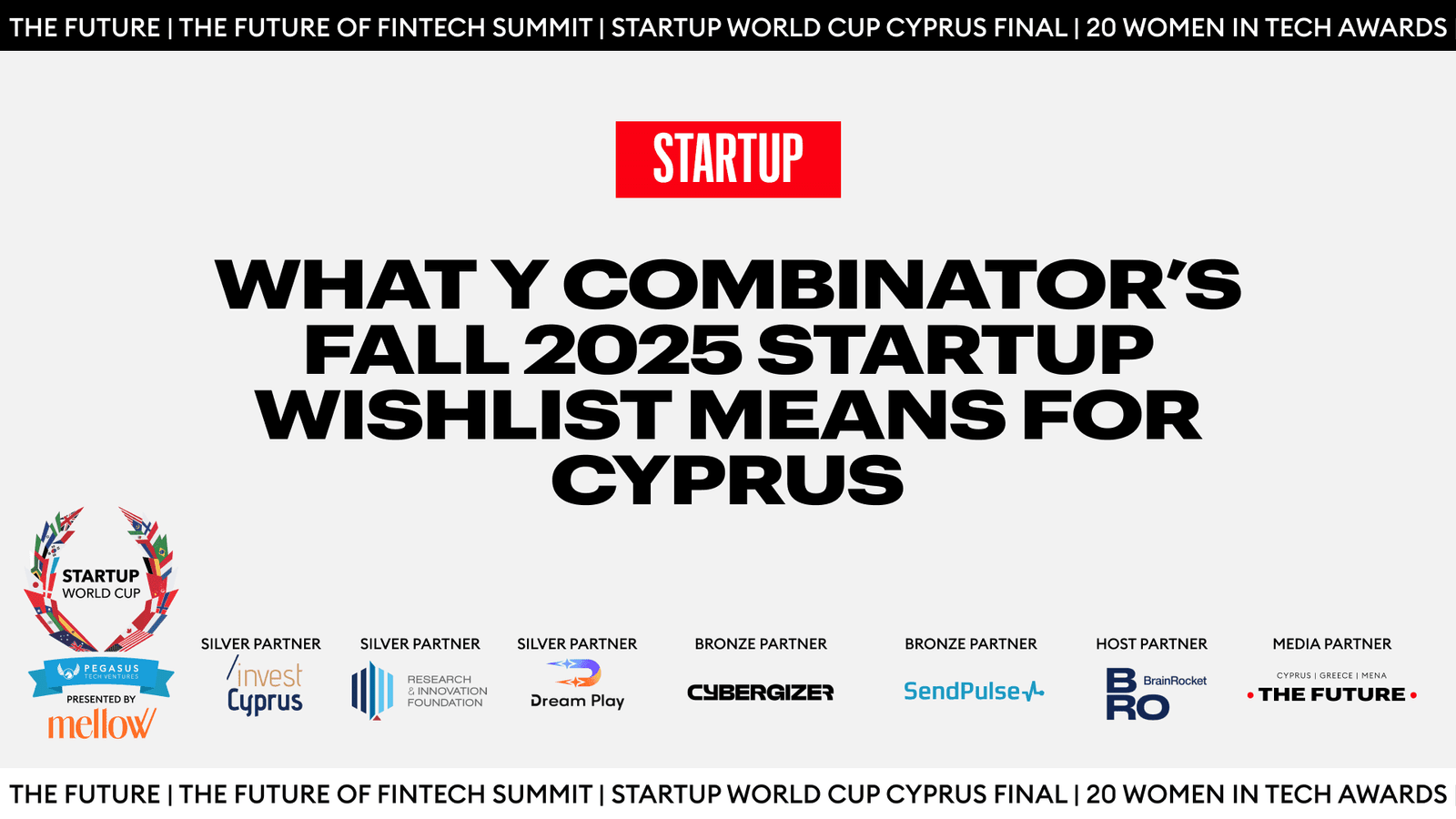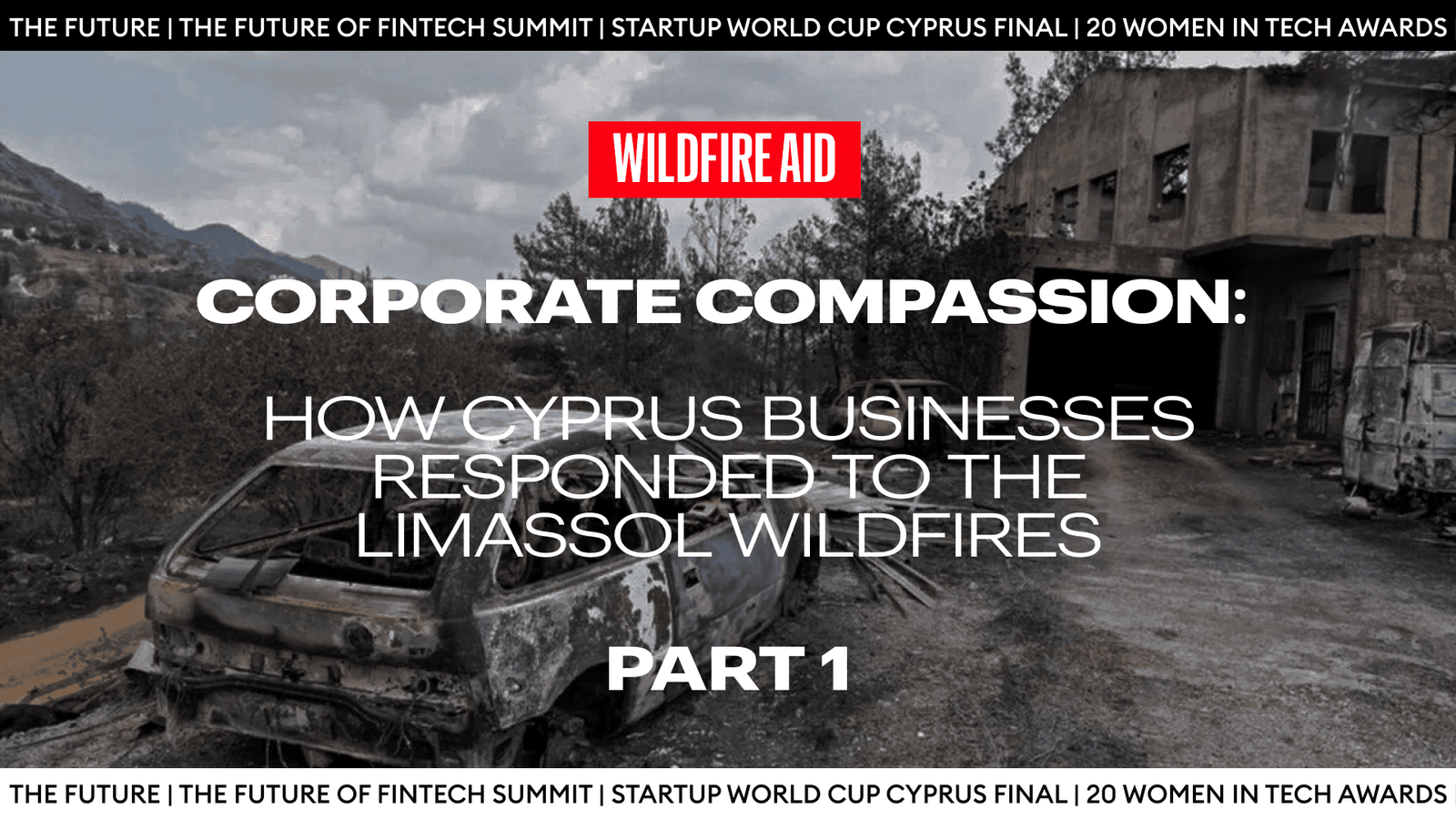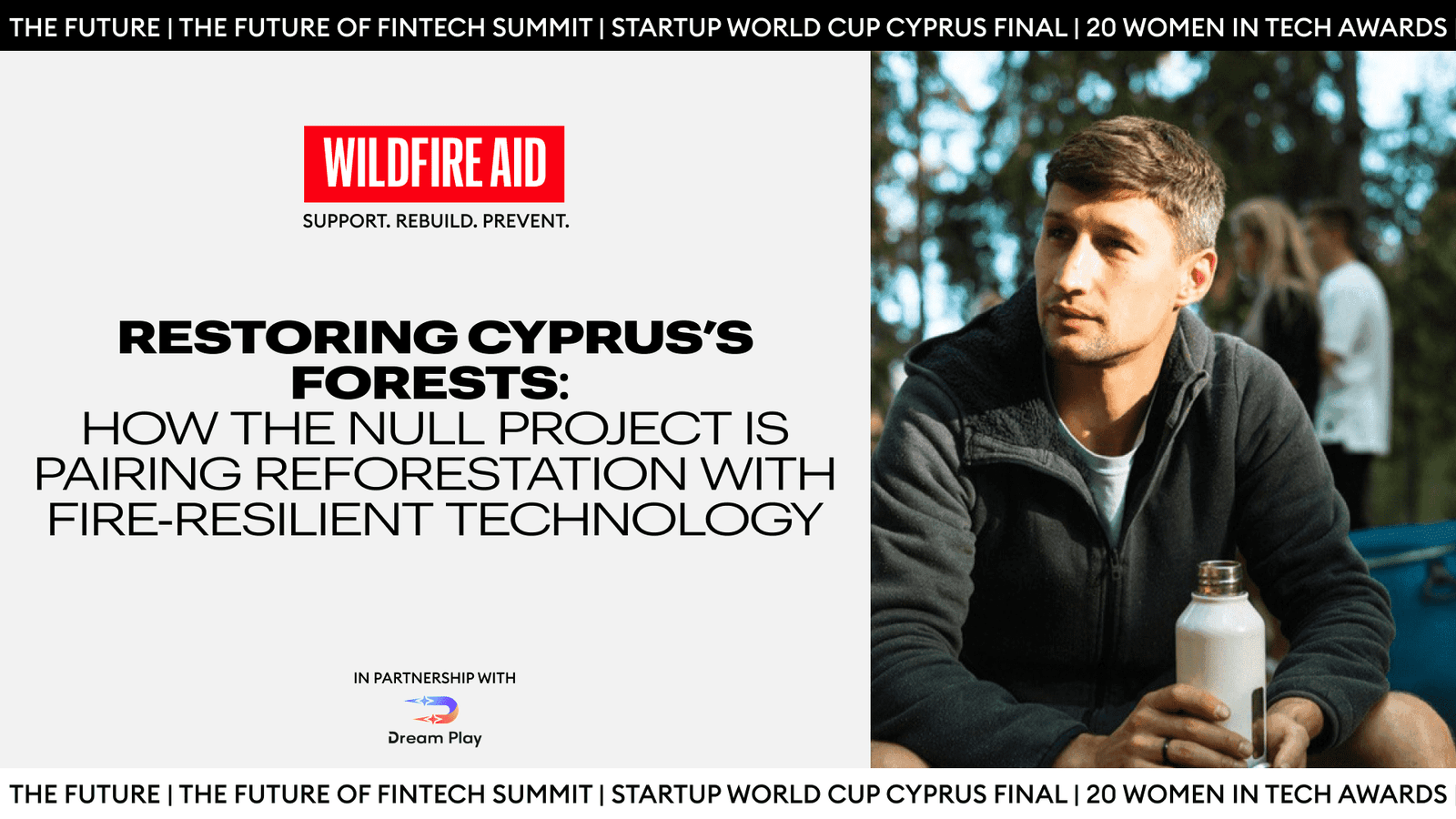Y Combinator, the Silicon Valley accelerator behind companies like Airbnb, Stripe, and OpenAI, has released its latest Requests for Startups (RFS) for the Fall 2025 batch. The list offers a glimpse into the ideas YC believes founders should be tackling, and where it sees the next wave of transformative startups emerging.
For founders in smaller ecosystems such as Cyprus, where early-stage capital and institutional accelerator programmes are still developing, the RFS provides insight into global investment trends and serves as an encouragement to build in these spaces.
Follow THE FUTURE on LinkedIn, Facebook, Instagram, X and Telegram
While the YC programme is targeted at U.S. startups, Cypriot founders working on AI infrastructure, enterprise tools, deep tech, or vertical SaaS may find that these themes offer a pathway toward international demand and traction. Understanding what is being funded next might just help local startups lead from where they are.
Below is a summary of the core areas YC is encouraging founders to build in.
Retraining Workers for the AI Economy
Y Combinator is calling for startups that reimagine how we train skilled tradespeople in the age of AI. The focus is on electricians, welders, and HVAC technicians, roles essential to building the infrastructure behind AI models, chips, and data centers. YC wants to back ventures that use AI tutors, AR/VR simulations, and new training tools to deliver job-ready skills more efficiently and at scale.
In Cyprus, labour market indicators already point to growing demand for these roles. The country’s job vacancy rate in construction and industry reached 2.8% in 2023, up from 1.7% in 2020, according to Eurostat, suggesting tightening conditions in technical sectors. At the same time, the national unemployment rate stood at just 5.8% in 2023, meaning few available workers are likely to meet the increasing demand for skilled trades.
Industry analysis from training provider Edstellar estimates an annual gap of around 5,000 skilled tradespeople, with over 1,000 construction trade vacancies each year, though these figures are not published by Cyprus’s public labour agencies.
Large-scale infrastructure investment projects, such as the Mari 260 MW CCGT power plant and planned data centres tied to the country’s digital transition, are adding further pressure to the skills pipeline. Though training programmes such as the New Modern Apprenticeship Scheme and the Green Skills for a Sustainable Economy exist, they are limited in capacity to fill the skilled labour gap. One solution to their limited capacity would be equipping these programmes with the tools to integrate AR/VR-based training systems, enabling more immersive, scalable, and industry-aligned learning experiences.
This provides a clear opportunity for Cypriot entrepreneurs. Startups could develop scalable, AI-native vocational training platforms for trades critical to the country’s digital and green transition.
Video Generation as a Primitive
Y Combinator is calling for founders who treat generative video as a new computing primitive and not an output, and Cyprus could have more potential here than meets the eye.
The country’s media sector, promoted under the “Olivewood” brand, offers film production incentives of up to 45%. Yet there’s no evidence that local studios or agencies are exploring generative video technologies or workflows. Academic institutions like the University of Cyprus and the Cyprus Institute conduct research in animation and virtual environments, but none currently focus on generative video systems.
One of Cyprus’s largest economic industries, tourism, which saw over 4 million arrivals in 2024, has begun exploring static 360° virtual tours but has yet to embrace generative video to power real-time, multilingual content. While the startup ecosystem continues to grow, no early-stage ventures have announced that they are building infrastructure for low-latency video generation.
The First 10-Person, $100B Company
Y Combinator is backing startups built by small, focused teams that maximise productivity through AI, automation, and high agency. The idea is that with the right tools, it’s now possible for teams of fewer than 10, even solo founders, to build billion-dollar companies. The most important metric is revenue per employee.
In Cyprus, this model reflects the conditions most founders already operate within. This is due mostly to the limited availability of large-scale private investment, with most early-stage funding coming through government grants, EU programmes, or bootstrapping. As a result, local startups are often lean by design, operating with small teams and few resources.
But this constraint has created a strength. Without relying on large teams or heavy infrastructure, Cypriot founders have already shown how to build export-ready software products, tap remote talent, and adopt automation to scale with limited capital.
While there are few formal metrics around revenue per employee in the Cypriot ecosystem, the environment is well-suited to founders aiming to build efficiently from the start. For startups operating in a resource-constrained setting, small may already be the default, and their advantage.
Infrastructure for Multi-Agent Systems
Y Combinator is calling for startups that build multi-agent systems. These are AI infrastructures that coordinate large-scale, distributed workflows efficiently, reliably, and autonomously. These systems could transform how governments and businesses manage complex, interlinked tasks.
In the Cypriot context, this capability could unlock tangible improvements in digital services:
- Under the Recovery and Resilience Plan (RRP), Cyprus is investing heavily in the digital transformation of public services, including €133 million toward building a modern, integrated digital architecture for government-service delivery. These ongoing upgrades present a foundation upon which agent-driven automation could layer seamlessly.
- The current government portal, Gov.cy, centralizes a wide range of departmental services but still relies on fragmented processes across ministries. This creates an opportunity for a multi-agent “wrapping” layer that can orchestrate cross-department workflows, streamlining tasks like permit issuance, residency applications, or tax compliance.
- For digital nomads and foreign professionals, administrative processes like visa renewals and business registrations involve multiple agencies. Imagine an autonomous agent system acting as a one-stop assistant, pulling data from various sources, translating status updates, and coordinating interlinked steps efficiently.
For founders and government innovators, the real opportunity lies in creating AI agents that can treat workflows as scalable computational pipelines, offering real-time oversight, multilingual interaction, and seamless interoperability.
AI Native Enterprise Software
Just as the cloud era enabled a generation of leaner, faster, SaaS-native tools to replace clunky incumbents, Y Combinator sees AI as the foundation for the next enterprise software revolution. The call is not for startups that simply bolt AI onto existing systems, but for those willing to rebuild the tools that professionals use every day, from the ground up.
In Cyprus, this opportunity is particularly relevant. Most SMEs still operate with fragmented workflows, whether a mix of spreadsheets, legacy ERPs, manual filing, and emails. The market is there for AI-native systems that improve accuracy, reduce busywork, and enable better decision-making. This is true for sectors like legal services, accounting, logistics, and property management.
Another major gap is localisation. Many existing enterprise systems are not available in Greek, and few support multilingual interfaces suited for Cyprus’s multilingual context. AI-native platforms built with language inclusivity in mind from the start could instantly serve a broader user base and gain an edge in both public and private sector adoption.
Using LLMs Instead of Government Consulting
Y Combinator is increasingly backing startups that aim to replace or augment traditional government consulting with AI-native tools. In Cyprus, where small teams in the public sector face growing demands for digital reporting and EU compliance, LLM-powered tools could significantly improve output and efficiency.
Ministries, agencies, and municipalities regularly outsource the creation of reports, compliance documents, policy roadmaps, and tendering frameworks, often at high cost and over extended timelines. LLM-based platforms could offer faster, more scalable alternatives.
Looking Ahead
The themes outlined by YC, from generative video and AI-native enterprise tools to vocational upskilling and public-sector automation, aren’t far-off ideas. They resonate with Cyprus’s own challenges in workforce development, government digitisation, creative industries, and tech infrastructure.
More importantly, they point to areas where Cypriot founders, operating with lean teams and deep domain knowledge, could build for both local relevance and global scale.
You can explore the full Requests for Startups list at ycombinator.com/rfs.









